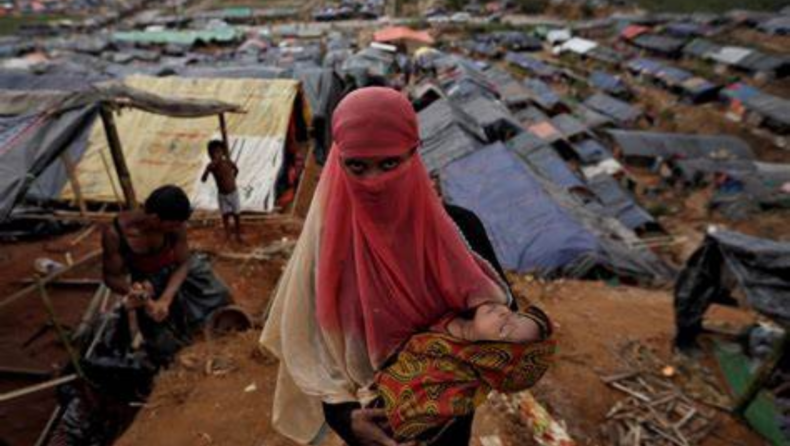Myanmar’s military launched a ferocious crackdown against the country’s Muslim Rohingya in 2017, leading more than 740,000 refugees into neighboring Bangladesh.
August 25 marks the fifth anniversary of the military crackdown that a united nations report found was carried out with ‘genocidal intent.
As per a report, more than 120,000 Rohingya fled to Bangladesh by September 5, 2017, filling its ill-equipped refugee camps.
As for now Rohingya people cannot be guaranteed safety in Myanmar, where the government has been accused of decades of abuse that has long-persecuted ethnic minorities largely stateless.
Finding their home in the world’s largest refugee settlement nearly one million Rohingya remains limited and in squalor.
On the fifth anniversary of Myanmar’s military operation that forced more than 740,000 Rohingya to leave their homes and settle in alien space, they now face the dilemma of being unable to return home while they struggle to survive in these camps.
Nearly 30,000 Rohingya babies are born to refugees each year in Bangladesh, and this number underscores the continued humanitarian demands of the refugee situation.

Response of Bangladesh to Rohingya
Dhaka has become increasingly inhospitable and intolerant to Rohingya refugees and the situation is being made worse by the country’s fragile economy which is being hit by sky-high inflation and a cost-of-living crisis owing to Russia’s war on Ukraine.
The movement of refugees has been limited to the camps by erecting barbed wire fences, this snatches away the opportunity for formal education, work, health, and travel.
Camp authorities have been extremely cruel as the residents have also reported that harassment by camp authorities has become commonplace.
During a recent trip to Bangladesh, UN human rights chief Michelle Bachelet said, “The current situation across the border means that the conditions are not right for returns.”
Bangladesh and Myanmar came up with a scheme in November 2017, Rohingya refugees were not willing to agree to this scheme as they wanted more guarantees about their safety, citizenship rights, and better living conditions.
There was a group of refugees who met Bachelet during her visit to the camps on august 16, Sayeed Hossain was part of this group.
“I told her we do want to return to Myanmar, but we don’t want to face repression and prosecution again, and that needs to be ensured,” he told Al Jazeera.
Is Myanmar a safe choice?
In Myanmar, this minority group continues to face marginalization and violence. Several restrictions have been enforced which include limiting the area of movement, access to education, and work opportunities.
Even limiting the number of children, they can have. Myanmar’s government has made sure to build the narrative that Rohingya do not have ancestral ties and that they are descendants of migrants from India and Bangladesh. This narrative is challenged by historians.
“We can hear artillery rounds and machine fire almost every day. Our children and families are in panic,” Deen Mohammed, the camp leader of the only Rohingya camp located in the so-called no man’s land on the Myanmar-Bangladesh border, known to locals as Zero Point, told Al Jazeera.
“We are unable to go to our own country still,” Mohammed said, adding that the fighting is also “getting very close to our camp area”.
The situation seems to worsen lately as the humanitarian community faces a fund crunch due to the war in Ukraine. Less than half of the $881 needed to support Rohingya refugees in Bangladesh through 2022 has been funded.
Exposed to this situation with no concrete solution Rohingya refugees are left with no choice but to live in this situation until their demands and rights are accepted by Myanmar.













